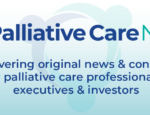Palliative care organizations that integrate employee feedback into their staff development policies have a fighting chance in battling ongoing burnout and turnover in the field. The palliative care workforce is facing a wide range of challenges that impact their ability to thrive in the field. Providing serious illness care can be emotionally and mentally taxing […]
American Journal of Hospice and Palliative Medicine
Data are reshaping the health care space, and hospice is no exception. Data has played a large role in the ability to gauge the impact of end-of life care. Hospice providers have needed a window into access and utilization, as well as how lawmakers are shaping policies around health care. This article is the second […]
Links exist between state certificate of need (CON) laws and hospice quality outcomes, researchers recently found. Roughly 86% of all hospices nationwide provide services in states that do not have certificate of need (CON) regulations in place, according to research from the American Journal of Hospice and Palliative Medicine. The remaining 14% of hospices in […]
When it comes to communication and quality of care for Black patients, recent data reinforces the notion that hospices have room to grow. The Center to Advance Palliative Care (CAPC) recently released key findings in its research review aimed at uncovering disparities in serious illness care quality and patient experiences among underserved populations. Among the […]
Individuals with serious mental illness (SMI) face an array of complicated barriers in accessing health care when they reach life’s final stages, leading to significant disparities. Inadequate collaboration among clinicians and lack of psychiatric-specific care are large contributing factors. Providing palliative care services can be a bridge for hospices to close gaps in care and […]
A rising number of hospice providers nationwide have diversified services to include palliative care in an effort to engage patients further upstream and open up new lines of revenue. Despite these efforts, palliative care remains widely untapped in many areas throughout the United States, with knowledge gaps about the nature of these services acting as […]








